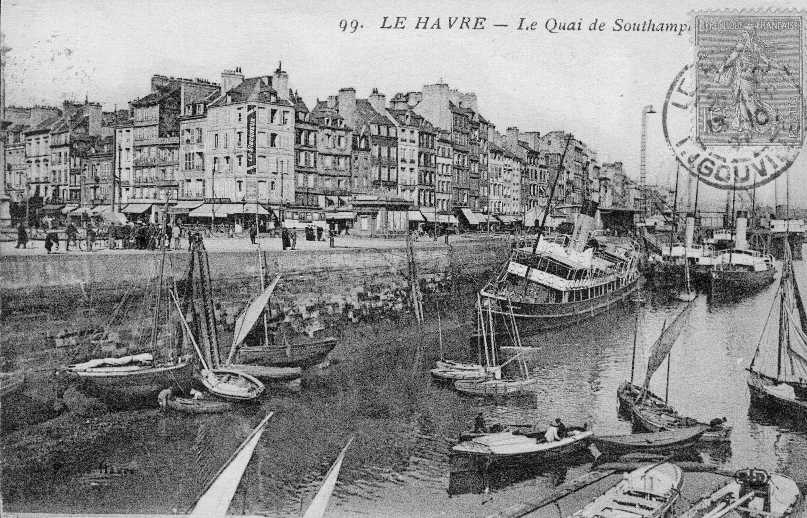|
The Autodidact
The Autodidact is a fictional character from Jean-Paul Sartre's 1938 novel ''Nausea Nausea is a diffuse sensation of unease and discomfort, sometimes perceived as an urge to vomit. While not painful, it can be a debilitating symptom if prolonged and has been described as placing discomfort on the chest, abdomen, or back of the ...''.Michel Contat and Michel Rybalka, Les Écrits de Sartre. Chronologie, bibliographie commentée, Paris, Gallimard, 1970, p. 61, E.T., Michel Contat and Michel Rybalka, trans. Richard C. McCleary, The Writings of Jean-Paul Sartre, Volume 1 "A Bibliographical Life", Evanston: Northwestern University Press, 1974, pp. 52-3. The Autodidact, who lives in Bouville near the protagonist Antoine Roquentin, passes his time by reading every book in the local library in alphabetical order. Self-instruction is of critical importance to him, and provides the explanation for his odd behaviour and continual self-delusion. The name ''Autodidact'' comes from the noun '' ... [...More Info...] [...Related Items...] OR: [Wikipedia] [Google] [Baidu] |
Jean-Paul Sartre
Jean-Paul Charles Aymard Sartre (, ; ; 21 June 1905 – 15 April 1980) was one of the key figures in the philosophy of existentialism (and phenomenology), a French playwright, novelist, screenwriter, political activist, biographer, and literary critic, as well as a leading figure in 20th-century French philosophy and Marxism. His work has influenced sociology, critical theory, post-colonial theory, and literary studies, and continues to do so. He was awarded the 1964 Nobel Prize in Literature despite attempting to refuse it, saying that he always declined official honors and that "a writer should not allow himself to be turned into an institution." Sartre held an open relationship with prominent feminist and fellow existentialist philosopher Simone de Beauvoir. Together, Sartre and de Beauvoir challenged the cultural and social assumptions and expectations of their upbringings, which they considered bourgeois, in both lifestyles and thought. The conflict between oppressive, ... [...More Info...] [...Related Items...] OR: [Wikipedia] [Google] [Baidu] |
Nausea (novel)
''Nausea'' (french: La Nausée) is a philosophical novel by the existentialist philosopher Jean-Paul Sartre, published in 1938. It is Sartre's first novel. The novel takes place in 'Bouville' (homophone of ''Boue-ville'', literally, 'Mud town') a town similar to Le Havre. It comprises the thoughts and subjective experiences—in a personal diary format—of Antoine Roquentin, a melancholy and socially isolated intellectual who is residing in Bouville ostensibly for the purpose of completing a biography on a historical figure. Roquentin's growing alienation and disillusionment coincide with an increasingly intense experience of revulsion, which he calls "the nausea", in which the people and things around him seem to lose all their familiar and recognizable qualities. Sartre's original title for the novel before publication was ''Melancholia''. The novel has been translated into English by Lloyd Alexander as ''The Diary of Antoine Roquentin'' and by Robert Baldick as ''Nausea''. C ... [...More Info...] [...Related Items...] OR: [Wikipedia] [Google] [Baidu] |
Autodidacticism
Autodidacticism (also autodidactism) or self-education (also self-learning and self-teaching) is education without the guidance of masters (such as teachers and professors) or educational institution, institutions (such as schools). Generally, autodidacts are individuals who choose the subject they will study, their studying material, and the studying rhythm and time. Autodidacts may or may not have formal education, and their study may be either a complement or an alternative to formal education. Many List of notable autodidacts, notable contributions have been made by autodidacts. Etymology The term has its roots in the Ancient Greek words (, ) and (, ). The related term ''didacticism'' defines an artistic philosophy of education. Terminology Various terms are used to describe self-education. One such is heutagogy, coined in 2000 by Stewart Hase and Chris Kenyon of Southern Cross University in Australia; others are ''self-directed learning'' and ''self-determined learni ... [...More Info...] [...Related Items...] OR: [Wikipedia] [Google] [Baidu] |
Male Characters In Literature
Male (symbol: ♂) is the sex of an organism that produces the gamete (sex cell) known as sperm, which fuses with the larger female gamete, or ovum, in the process of fertilization. A male organism cannot reproduce sexually without access to at least one ovum from a female, but some organisms can reproduce both sexually and asexually. Most male mammals, including male humans, have a Y chromosome, which codes for the production of larger amounts of testosterone to develop male reproductive organs. Not all species share a common sex-determination system. In most animals, including humans, sex is determined genetically; however, species such as ''Cymothoa exigua'' change sex depending on the number of females present in the vicinity. In humans, the word ''male'' can also be used to refer to gender in the social sense of gender role or gender identity. Overview The existence of separate sexes has evolved independently at different times and in different lineages, an example o ... [...More Info...] [...Related Items...] OR: [Wikipedia] [Google] [Baidu] |
Literary Characters Introduced In 1938
Literature is any collection of written work, but it is also used more narrowly for writings specifically considered to be an art form, especially prose fiction, drama, and poetry. In recent centuries, the definition has expanded to include oral literature, much of which has been transcribed. Literature is a method of recording, preserving, and transmitting knowledge and entertainment, and can also have a social, psychological, spiritual, or political role. Literature, as an art form, can also include works in various non-fiction genres, such as biography, diaries, memoir, letters, and the essay. Within its broad definition, literature includes non-fictional books, articles or other printed information on a particular subject.''OED'' Etymologically, the term derives from Latin ''literatura/litteratura'' "learning, a writing, grammar," originally "writing formed with letters," from ''litera/littera'' "letter". In spite of this, the term has also been applied to spoken or sun ... [...More Info...] [...Related Items...] OR: [Wikipedia] [Google] [Baidu] |


